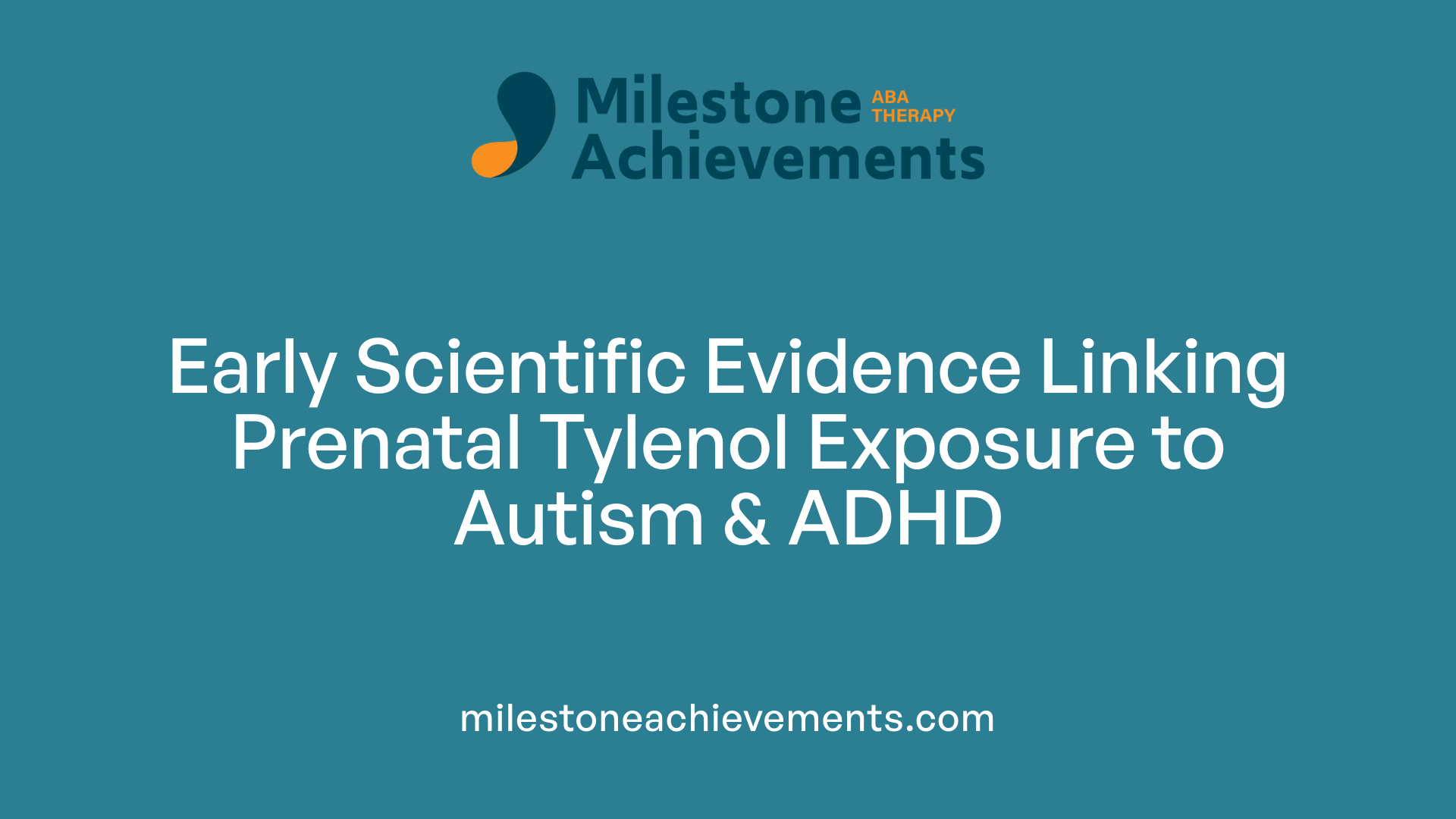
Updates on Tylenol Autism Lawsuit
Legal Battles Continue in Tylenol Autism Litigation
A Comprehensive Update on the Ongoing Lawsuit Concerning Tylenol and Neurodevelopmental Risks
The recent developments in the multistate and multidistrict litigation highlight a complex legal landscape surrounding allegations that Tylenol, manufactured by Johnson & Johnson, may pose risks of autism and ADHD when used during pregnancy. This article provides an in-depth overview of the current state of the lawsuit, scientific evidence, legal strategies, and future prospects for affected families seeking justice and compensation.
Formation of the Multidistrict Litigation (MDL) and Early Scientific Findings

Creation of MDL No. 3043 in October 2022
In October 2022, the federal court established MDL No. 3043 regarding allegations that prenatal exposure to acetaminophen—commonly known by the brand name Tylenol—may lead to autism spectrum disorder (ASD) and attention-deficit hyperactivity disorder (ADHD). This move consolidated hundreds of individual lawsuits into a single multidistrict litigation proceedings in the Southern District of New York, overseen by Judge Denise Cote. The centralization aimed to streamline case handling, discovery, and pretrial motions, alleviating individual court burdens and promoting judicial efficiency.
Initial scientific studies linking prenatal Tylenol exposure to autism and ADHD
Early research played a crucial role in shaping the litigation’s foundation. Multiple epidemiological studies indicated a potential association between in utero acetaminophen exposure and increased risk for neurodevelopmental disorders. Notably, the Danish National Birth Cohort revealed that children with high prenatal acetaminophen levels had a 19% higher chance of developing autism and a 21% increased risk of ADHD. Similarly, a 2018 meta-analysis found a 34% increased risk of ADHD and a 19% increased risk of autism among children exposed prenatally.
Scientific findings also suggested dose-dependent relationships, where longer or higher doses of acetaminophen during pregnancy correlated with greater risks. Researchers proposed biological mechanisms, including acetaminophen’s role as an endocrine disruptor, affecting fetal brain development. Supporting this, landmark studies like the 2020 JAMA Psychiatry report highlighted that children with elevated umbilical cord acetaminophen levels demonstrated increased neurobehavioral risks.
While these findings fueled the legal claims, experts and scientists emphasize the need for further robust, causation-focused research to confirm these associations definitively. Nonetheless, the convergence of observational data and biological plausibility set the stage for the complex litigation that followed, linking prenatal acetaminophen exposure to serious developmental disabilities.
Recent Court Decisions and Procedural Developments

Dismissal of federal MDL cases on August 22, 2024
On August 22, 2024, Judge Denise Cote dismissed the federal multidistrict litigation (MDL) concerning the alleged link between prenatal acetaminophen exposure and neurodevelopmental disorders like autism and ADHD. The dismissal was based on a summary judgment ruling, which concluded that the plaintiffs failed to establish sufficient scientific evidence of causation. This effectively ended the main federal case unless the decision is overturned upon appeal.
However, this is not the end of all litigation related to the issue. Several active cases remain in state courts, including in Illinois and California, with scheduled hearings and trial dates set for later in 2024 and into 2025. The federal ruling has significant procedural implications, shifting some focus to state jurisdictions where different evidentiary standards and proceedings are underway.
Pending appeals and ongoing legal reviews
The plaintiffs have filed appeals challenging the recent dismissals, particularly the exclusion of expert testimony which was central to the court’s decision. The Second Circuit Court is expected to issue a ruling in early 2025 on these appeals, which could potentially reinstate some of the claims or influence future scientific admissibility standards.
These appeals address whether the scientific evidence presented by plaintiffs—particularly the expert analyses based on Bradford Hill criteria—should be admitted to establish causation sufficiently. The outcome of these reviews may dramatically shape the trajectory of the litigation, either reopening avenues for liability or reinforcing the current dismissals.
Daubert hearings and expert testimony rulings
A critical aspect of these proceedings has been the Daubert hearings, scheduled and conducted to determine whether expert testimony complies with standards of scientific validity and relevance. For instance, a Daubert hearing held on December 7, 2023, scrutinized the methodology and scientific credibility of the evidence linking acetaminophen to autism and ADHD.
Recent rulings have excluded certain expert witnesses, citing issues such as lack of peer-reviewed research or insufficient biological plausibility. Nonetheless, some experts’ testimonies regarding dose-response relationships and biological mechanisms remain admissible, offering a foundation for ongoing causation arguments.
Impact of recent legal rulings on case trajectory
The recent dismissals and evidentiary decisions have slowed the progression of the federal MDL. These rulings highlight the courts’ cautious approach to complex scientific evidence, emphasizing the need for robust, peer-reviewed proof before establishing liability. The delays caused by such rulings have also redirected plaintiffs’ efforts toward state courts, where different evidentiary and procedural rules may yield alternative pathways to establish causality.
Despite setbacks, plaintiffs continue to compile scientific evidence and prepare for future litigation phases. The ongoing appellate review and state court activities suggest that, while current federal proceedings have faced hurdles, legal and scientific battles over acetaminophen’s safety during pregnancy remain very much alive.
| Date | Court Decision | Impact on Litigation | Next Steps |
|---|---|---|---|
| August 22, 2024 | Dismissal of MDL by Judge Cote | Federal cases ended unless overturned on appeal | Plaintiffs’ appeal filed; Second Circuit ruling expected in early 2025 |
| December 7, 2023 | Daubert hearing on expert testimony | Challenges to admissibility of scientific evidence | Court to decide on expert witness admissibility |
| Early 2025 | Anticipated appellate ruling | Potential reinstatement or further restrictions on claims | Impact on future proceedings and case strategy |
Overall, recent rulings have significantly influenced the legal landscape surrounding the Tylenol prenatal exposure cases. These procedural decisions underscore the critical importance of scientific evidence and expert testimony standards, which remain central to both the outcome of appeals and ongoing state-level litigation.
Looking Ahead in the Tylenol Autism Litigation
As the legal battle unfolds with ongoing appeals, scientific debates, and possible future rulings, affected families and legal stakeholders remain deeply engaged in the pursuit of justice. The complexity of establishing causation and the evolving legal standards ensure that this case will likely remain a focal point in product liability law and public health policy discussions for years to come. Continued research and judicial review will be essential in shaping the final outcomes, providing clarity on the risks associated with prenatal Tylenol exposure and the responsibilities of pharmaceutical companies to warn consumers.
References
- Tylenol Autism Lawsuit Settlements | July 2025 Update
- Acetaminophen (Tylenol) Litigation - Keller Postman
- Tylenol During Pregnancy Autism/ADHD Lawsuit | Update 2025
- Tylenol Autism Lawsuit | October 2024 Class Action Update
- Tylenol Autism Lawsuit | October 2024 Update - Miller & Zois
- Tylenol Autism Lawsuit | August 2025 Updates - Consumer Notice
- Tylenol Autism and ADHD Lawsuit - Saiontz & Kirk, P.A.
- Tylenol Autism Lawsuit | Settlement & Claims (April 2025 Update)


Partner with us on your child's journey
Milestone Achievements offers evidence-based ABA therapy to help children with autism reach their full potential. Together we’ll set meaningful goals and celebrate progress every step of the way.
Start ABA Services Today


